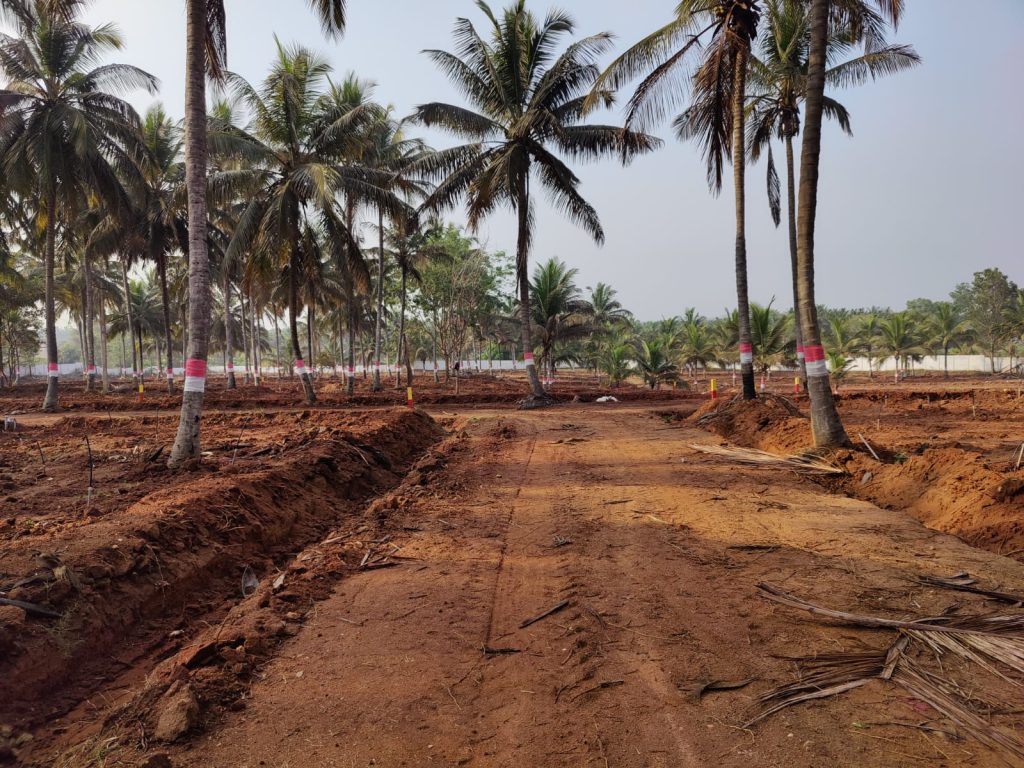
Modern agriculture is progressing along various paths simultaneously, yet its main objective remains to harness agricultural technologies to enhance crop yields via improved planning and more intelligent management. By promoting more effective and sustainable farming practices, advanced agricultural technology empowers farmers to thrive in their agricultural pursuits. Sharanya Farm is a Managed farmland near Mysore Road which implements advanced practices like crop rotation and new agricultural technologies, such as monitoring field productivity with machinery and special farming software, all contribute to the success of agriculture.
The integration of technology has become imperative for farmers looking to maximise efficiency, optimise resource management, and ultimately boost agricultural output. Traditional farming methods are being replaced by innovative solutions that streamline operations, increase productivity, and ensure sustainability. In this blog, we’ll explore how modernising farm management with technology is revolutionising the way we produce food and driving significant improvements in agricultural output.
Precision Agriculture: Revolutionising Farming Practices
At the heart of modernising farm management is the concept of precision agriculture. By leveraging technologies such as GPS, sensors, and data analytics, farmers can now monitor and manage their fields with unprecedented accuracy. Soil moisture levels, crop health indicators, and weather patterns can all be analysed in real time, allowing farmers to make informed decisions about planting, irrigation, and pest control.
One of the key technologies driving precision agriculture is the use of drones. Equipped with high-resolution cameras and sensors, drones can capture detailed aerial imagery of farmland, enabling farmers to identify issues such as nutrient deficiencies or pest infestations early on. This data can then be used to create precise application maps for targeted interventions, minimising waste and maximising effectiveness.
Harnessing the Power of Data Analytics
In addition to capturing vast amounts of data, technology also provides the means to analyse and derive actionable insights from this information. Advanced data analytics platforms can process and interpret data collected from various sources, allowing farmers to identify trends, patterns, and correlations that may not be immediately apparent. For example, predictive analytics algorithms can forecast crop yields based on historical data, weather patterns, and other relevant factors. Armed with this information, farmers can better plan their planting and harvesting schedules, optimise input usage, and mitigate potential risks. Moreover, data-driven decision-making enables continuous improvement, as farmers can learn from past experiences and refine their strategies over time.
Beyond the Field: Optimising Resource Management
Modernising farm management also encompasses the efficient management of resources and operations throughout the farming enterprise. Farm management software solutions provide comprehensive tools for planning, scheduling, and tracking various activities such as planting, irrigation, and fertilisation.
Furthermore, the integration of IoT-enabled smart devices in farm machinery and equipment enables remote monitoring and control, predictive maintenance, and automated workflows. This not only improves equipment performance and longevity but also enhances overall operational efficiency by reducing manual intervention and optimising asset utilisation.
Looking Ahead: Fostering Sustainable Agriculture
As we look to the future, the role of technology in modernising farm management will continue to evolve and expand. Emerging technologies such as AI, machine learning, and blockchain hold the promise of further revolutionising agriculture by enabling autonomous decision-making, optimising supply chain logistics, and ensuring transparency and traceability across the entire food production process.
However, for technology to realise its full potential in agriculture, it is essential to address various challenges such as digital literacy, access to infrastructure, and data privacy and security concerns. Moreover, collaboration and knowledge-sharing among stakeholders, including farmers, researchers, policymakers, and technology providers, will be crucial for driving innovation and fostering sustainable agricultural practices.
Summary
Modernising farm management with technology offers unparalleled opportunities for boosting agricultural output, increasing efficiency, and ensuring sustainability. By embracing precision agriculture techniques, harnessing the power of data analytics, and leveraging advanced technologies for resource management and operations, farmers can optimise their yields, minimise environmental impact, and ensure the long-term viability of agriculture.
As we stand on the brink of a new era in farming, now is the time to embrace innovation and unlock the full potential of technology to feed a growing global population while preserving our planet’s precious resources. If you are looking for the best-managed farmland near me, then you can consider Sharanya Farm where innovative farming practices are implemented to foster a resilient, sustainable future. By embracing technology-driven solutions, farmers can not only thrive in today’s competitive agricultural landscape but also pave the way for a more sustainable and prosperous future for generations to come.